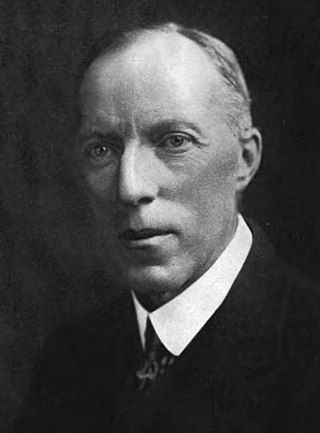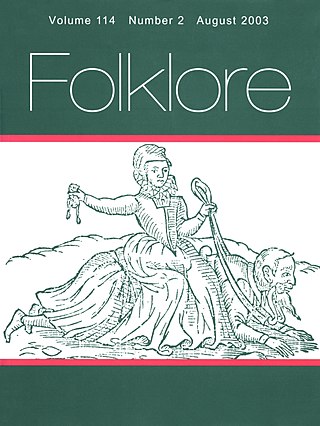Related Research Articles

Folklore is shared by a particular group of people; it encompasses the traditions common to that culture, subculture or group. This includes tales, myths, legends, proverbs, poems, jokes and other oral traditions. They include material culture, ranging from traditional building styles common to the group. Folklore also includes customary lore, taking actions for folk beliefs, the forms and rituals of celebrations such as Christmas and weddings, folk dances and initiation rites. Each one of these, either singly or in combination, is considered a folklore artifact or traditional cultural expression. Just as essential as the form, folklore also encompasses the transmission of these artifacts from one region to another or from one generation to the next. Folklore is not something one can typically gain in a formal school curriculum or study in the fine arts. Instead, these traditions are passed along informally from one individual to another either through verbal instruction or demonstration. The academic study of folklore is called folklore studies or folkloristics, and it can be explored at undergraduate, graduate and Ph.D. levels.

A moral panic is a widespread feeling of fear, often an irrational one, that some evil person or thing threatens the values, interests, or well-being of a community or society. It is "the process of arousing social concern over an issue", usually perpetuated by moral entrepreneurs and mass media coverage, and exacerbated by politicians and lawmakers. Moral panic can give rise to new laws aimed at controlling the community.
Nomenclature is a system of names or terms, or the rules for forming these terms in a particular field of arts or sciences. The principles of naming vary from the relatively informal conventions of everyday speech to the internationally agreed principles, rules and recommendations that govern the formation and use of the specialist terminology used in scientific and any other disciplines.
Applied linguistics is an interdisciplinary field which identifies, investigates, and offers solutions to language-related real-life problems. Some of the academic fields related to applied linguistics are education, psychology, communication research, information science, natural language processing, anthropology, and sociology.

Cecil James Sharp was an English-born collector of folk songs, folk dances and instrumental music, as well as a lecturer, teacher, composer and musician. He was the pre-eminent activist in the development of the folk-song revival in England during the Edwardian period. According to Folk Song in England, Sharp was the country’s "single most important figure in the study of folk song and music."

Folklore studies is the branch of anthropology devoted to the study of folklore. This term, along with its synonyms, gained currency in the 1950s to distinguish the academic study of traditional culture from the folklore artifacts themselves. It became established as a field across both Europe and North America, coordinating with Volkskunde (German), folkeminner (Norwegian), and folkminnen (Swedish), among others.
The Irish Literary Revival was a flowering of Irish literary talent in the late 19th and early 20th century. It includes works of poetry, music, art, and literature.

Folk art covers all forms of visual art made in the context of folk culture. Definitions vary, but generally the objects have practical utility of some kind, rather than being exclusively decorative. The makers of folk art are typically trained within a popular tradition, rather than in the fine art tradition of the culture. There is often overlap, or contested ground with 'naive art'. "Folk art" is not used in regard to traditional societies where ethnographic art continue to be made.

Music of Punjab reflects the traditions of the Punjab region of the Indian subcontinent, currently divided into two parts: East Punjab, in India, and West Punjab, the most populous province of Pakistan. The Punjab has diverse styles of music, ranging from folk and Sufi to classical, notably the Patiala gharana. Contemporary Punjabi music has tended to include more modern hip-hop and R&B sounds. While this style of music is obviously most popular in Punjab, it has seen popularity across the subcontinent and areas with large Punjabi diaspora populations, such as Canada, the United Kingdom, and the United States.
Finnish poetry is the poetry from Finland. It is usually written in the Finnish language or Swedish language, but can also include poetry written in Northern Sámi or other Sámi languages. It has its roots in the early folk music of the area, and still has a thriving presence today.
The Sri Lankan Kaffirs are an ethnic group in Sri Lanka who are partially descended from 16th-century Portuguese traders and Bantu slaves who were brought by them to work as labourers and soldiers to fight against the Sinhala Kings. They are very similar to the Zanj-descended populations in Iraq and Kuwait, and are known in Pakistan as Sheedis and in India as Siddis. The Kaffirs spoke a distinctive creole based on Portuguese, and the "Sri Lankan Kaffir language". Their cultural heritage includes the dance styles Kaffringna and Manja and their popular form of dance music Baila.
Katharine Mary Briggs was a British folklorist and writer, who wrote The Anatomy of Puck, the four-volume A Dictionary of British Folk-Tales in the English Language, and various other books on fairies and folklore. From 1969 to 1972, she was president of the Folklore Society, which established an award in her name to commemorate her life and work.
The Folklore Society (FLS) is a national association in the United Kingdom for the study of folklore.

Contemporary folk music refers to a wide variety of genres that emerged in the mid 20th century and afterwards which were associated with traditional folk music. Starting in the mid-20th century a new form of popular folk music evolved from traditional folk music. This process and period is called the (second) folk revival and reached a zenith in the 1960s. The most common name for this new form of music is also "folk music", but is often called "contemporary folk music" or "folk revival music" to make the distinction. The transition was somewhat centered in the US and is also called the American folk music revival. Fusion genres such as folk rock and others also evolved within this phenomenon. While contemporary folk music is a genre generally distinct from traditional folk music, it often shares the same English name, performers and venues as traditional folk music; even individual songs may be a blend of the two.
William Crooke was a British orientalist and a key figure in the study and documentation of Anglo-Indian folklore. He was born in County Cork, Ireland, and was educated at Erasmus Smith's Tipperary Grammar School and Trinity College, Dublin.
Michael Dylan Foster is a professor of Folklore and the current Chair of the East Asian Languages and Cultures department at the University of California, Davis. He has taught in some capacity since 1989, starting in Japan teaching the English language on the Japanese Exchange and Teaching Programme, returning to the United States to teach Japanese folklore and literature. In addition to his academic career, which has mainly focused on Japanese literature and culture, he has published several short stories, articles, and novels. Much of his work on Japanese folklore has centered on tales of the supernatural—the strange and the weird. That is the subject of his first book, Pandemonium and Parade: Japanese Monsters and the Culture of Yôkai, which received the Chicago Folklore Prize in 2009. He is the current editor of the Journal of Folklore Research.

Dimitrios "Dimitris" Loukatos (1908–2003), was a folklorist-anthropologist and specialist in Greek folklore.
Charlotte Sophia Burne (1850–1923) was an English author and editor, and the first woman to become president of the Folklore Society.
John Garth is a British journalist and author, known especially for writings about J. R. R. Tolkien including his biography Tolkien and the Great War and a book on the places that inspired Middle-earth, The Worlds of J. R. R. Tolkien. He won a 2004 Mythopoeic Award for Scholarship for his work on Tolkien. The biography influenced much Tolkien scholarship in the subsequent decades.
Edward Fletcher Cass was a British miner, banker and authority on Lancashire folklore, industrial archaeology and the arts who was President of the Manchester Literary and Philosophical Society, Folklore Society, Lancashire and Cheshire Antiquarian Society and Society for Folk Life Studies.
References
- ↑ "Society for Folk Life Studies". Oxford Reference. Retrieved 23 March 2019.